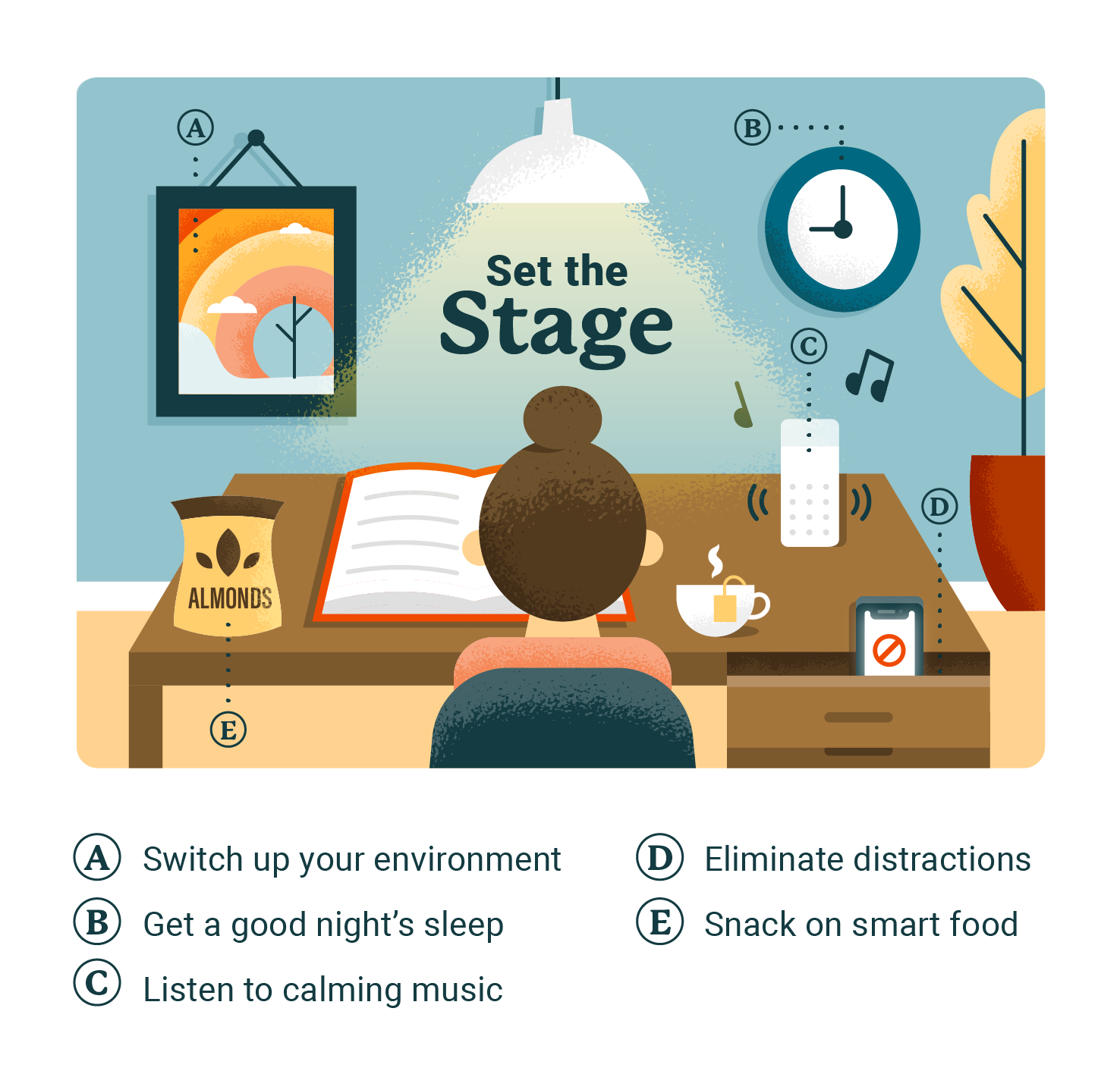Introduction:
- Briefly introduce the importance of effective studying and its impact on academic success.
- Mention that the blog will cover practical tips and strategies for optimizing your study routine.
1. Understand Your Learning Style:
- Explain the concept of learning styles (visual, auditory, kinesthetic, etc.).
- Encourage readers to identify their dominant learning style.
- Provide tips for adapting study techniques to their preferred style.
2. Set Clear Goals:
- Discuss the significance of setting specific, measurable, achievable, relevant, and time-bound (SMART) goals.
- Offer examples of both short-term and long-term study goals.
- Highlight how goal-setting can boost motivation and focus.
3. Create a Productive Study Environment:
- Emphasize the importance of a clutter-free, well-lit, and comfortable study space.
- Mention the benefits of minimizing distractions (phone, social media, noise).
- Suggest incorporating personal touches to make the study area appealing.
4. Master Time Management:
- Introduce the Pomodoro Technique (work in focused intervals with short breaks) and other time management methods.
- Recommend using tools like timers or productivity apps.
- Stress the significance of balancing study time with relaxation and self-care.
5. Active Note-Taking Techniques:
- Explain various note-taking methods (Cornell, mind maps, outlining).
- Share the benefits of summarizing and paraphrasing information.
- Encourage the use of colors, diagrams, and highlighters to enhance memory retention.
6. Utilize Effective Study Resources:
- Discuss the importance of using reliable textbooks, online resources, and research papers.
- Recommend reputable websites, databases, and academic journals.
- Mention the value of cross-referencing information from multiple sources.
7. Practice Retrieval and Self-Testing:
- Explain the concept of retrieval practice (quizzing yourself) for better long-term retention.
- Suggest creating flashcards, taking practice quizzes, or explaining concepts to others.
- Highlight that testing helps identify weak areas and improves overall understanding.
8. Stay Healthy and Well-Rested:
- Stress the connection between physical well-being and cognitive function.
- Advise readers to maintain a balanced diet, stay hydrated, and engage in regular exercise.
- Highlight the importance of adequate sleep for memory consolidation.
9. Collaborative Learning and Teaching Others:
- Discuss the benefits of group study sessions and peer teaching.
- Encourage readers to explain concepts to friends or family members.
- Explain how teaching others reinforces one's own understanding.
10. Embrace Continuous Learning:
- Emphasize the value of curiosity and a growth mindset.
- Recommend exploring additional topics related to the subject at hand.
- Suggest resources for online courses, workshops, and webinars.
Conclusion:
- Summarize the key takeaways from the blog.
- Encourage readers to experiment with different study strategies to find what works best for them.
- Express confidence that applying these tips will lead to improved study habits and academic success.
Remember to incorporate relevant examples, anecdotes, and visual aids to make your blog engaging and relatable. Good luck with your study material blog!












0 Comments